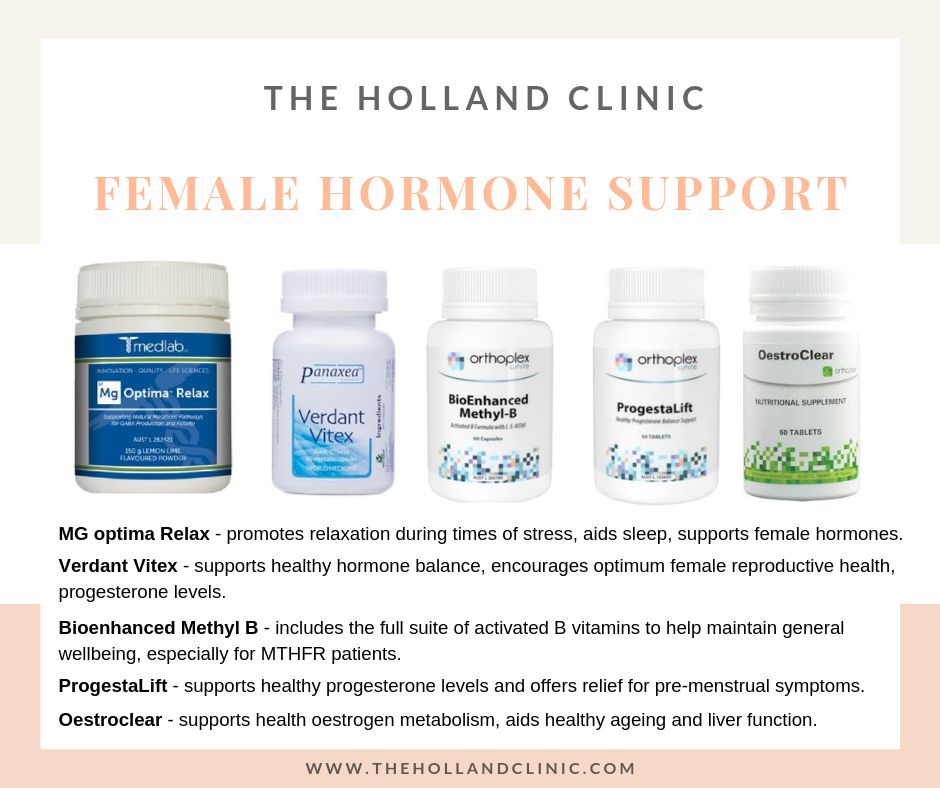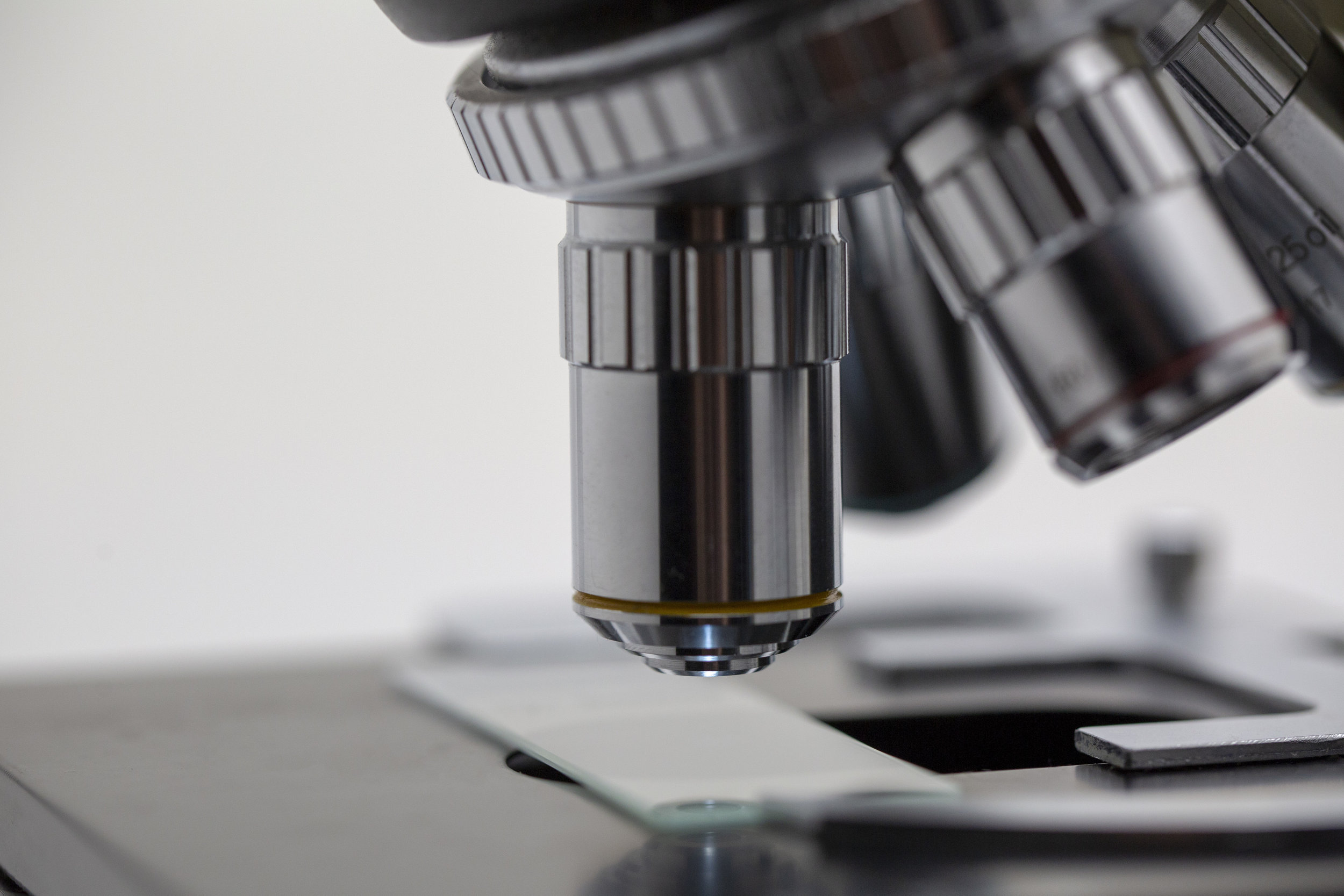
Hormones play a major role in women’s lives, dictating many bodily functions including sleep, stress, appetite and libido to name a few. We understand how overwhelming it can be for women to understand the hormone puzzle and are here to provide support to help women better understand how their hormones work and how they can be impacting their bodies and health. Two of the main hormones affecting women are Estrogen and Progesterone.
Estrogen is a female sex hormone produced by the endocrine system whose main role is promoting growth. It is needed particularly during puberty and pregnancy and is involved in the menstrual cycle, supporting bone strength, and maintaining normal cholesterol levels.
Progesterone is produced by the ovaries, placenta and adrenal glands and is secreted by the female reproductive system to regulate the inner lining (endometrium) of the uterus. It plays an important role in regulating the menstrual cycle and in maintaining the early stages of pregnancy.
Effects of Estrogen dominance
Estrogen dominance occurs when we have too much estrogen in the body and is relative to the other sex hormones, such as having too little progesterone to balance it out. Estrogen dominance can affect a woman’s body in many ways, including abnormal menstruation (heavy/painful periods), PMS, headaches, decreased sex drive, bloating, mood swings, fatigue, anxiety & depression, breast tenderness, endometriosis, fibroids, and hormonal weight gain.
There are many factors that can contribute to estrogen dominance, including
-
Insulin and cortisol imbalance: These two hormones are involved with stress responses and blood sugar levels in the body. If they become imbalanced they can affect other hormones in the body, in particular the ovarian, thyroid, progesterone, testosterone and sleep hormones, disrupting how they work.
-
The Contraceptive Pill and Hormone Replacement Therapy (HRT): The pill regulates your hormones by stopping ovulation. However, if you do not ovulate you do not produce progesterone, which can lead to higher levels of estrogen. HRT provides high levels of synthetic estrogen, which the body finds harder to get rid of than natural hormones.
-
Poor liver function: the liver detoxifies estrogen, it is then eliminated through the bowel. If our livers aren’t functioning properly and we are not eliminating the estrogen it can lead to a build-up.
-
Weight gain: our fat cells can make estrogen, so the more fat we store, the more our estrogen levels can increase.
-
Poor diet: the body requires B vitamins, Magnesium, Zinc, Omega’s and protein to effectively metabolise estrogen. If your diet is lacking in these vitamins and minerals, then estrogen levels will increase.
-
Genetics: Family genetics also play a part in estrogen production. Some women may find they produce excess estrogen and do not suffer with any negative symptoms, while others will struggle significantly. This is due to how we potentially metabolise down the 3 different pathways for estrogen metabolism.
-
Chemical estrogens: such as BPA, pesticides, beauty products, that are either ingested or absorbed through the skin can mimic our bodies own estrogen, causing levels to increase.
Effects of low Progesterone
Progesterone is especially important during the childbearing years, if you don’t produce enough progesterone, you may have trouble getting or staying pregnant. Progesterone is secreted after ovulation during the second half of the menstrual cycle and helps the uterus thicken, ready to receive a fertilized egg. If the uterus is not thick enough, the egg won’t implant.
Low progesterone may cause irregular or absent menstrual cycles, mood changes (particularly anxiety or depression), hot flashes, night sweats, vaginal dryness, and headaches or migraines in women who aren’t pregnant. Pregnant women need progesterone to maintain their uterus until the baby is born, if progesterone levels are too low the uterus may not be able to carry the baby to term, with symptoms including spotting and miscarriage.
Normally men, children, and postmenopausal women all have lower progesterone levels compared to women in their childbearing years. What is considered “normal” progesterone levels depends on a person’s age and gender. Progesterone levels normally fluctuate throughout the menstrual cycle, peaking around a week before your period.
What can we do about it?
If you think you have a hormone imbalance we encourage you to speak with your healthcare professional to see what support is available and relevant to you.
There are numerous tests available that measure hormone levels. At The Holland Clinic we use the DUTCH Test, a comprehensive test which measures hormone metabolites from dried urine samples. The hormones measured in the test include: cortisol, cortisone, estradiol, estrone, estriol, progesterone, testosterone, DHEA, melatonin, cortisol and cortisone rhythms and levels, and estrogen metabolism pathways. One of the benefits of the test is that is can show us how we metabolise oestrogen out of the body, allowing for more effective hormone support for patients.
Natural ways to manage these hormone imbalances include:
Managing estrogen dominance:
-
Liver support: in order to metabolise estrogen appropriately and efficiently – avoiding toxins especially alcohol.
-
Manage stress levels: help balance cortisol levels by reducing stress levels.
-
Manage insulin levels: choose a low GI diet with low sugar and carbohydrates.
-
Avoid chemical estrogens: look for BPA approved plastics or alternatives, switch to natural brands for your toiletries & cosmetics, and go organic to limit your exposure to pesticides.
-
Lose weight: remember less fat = less estrogen production.
-
Supplementation: if your diet is lacking, we recommend taking supplements to help restore balance.
Managing low progesterone:
Preconception & pregnancy: If you are trying to have a baby, hormone therapy may be useful to increase progesterone levels to help thicken your uterine lining, which may improve the chances of a healthy pregnancy and carrying to term.
Menstrual irregularities and abnormal bleeding: can improve with hormone therapy. For severe symptoms of menopause, hormone therapy usually involves a combination of estrogen and progesterone.
-
Creams and gels, which can be used topically or vaginally
-
Bio identical hormones (either oestrogen only or a combination of estrogen and progesterone)
-
Supplementation: increasing your intake of vitamins B and C, which are necessary for maintaining progesterone levels
-
Diet: eating foods high in zinc, like shellfish
-
Herbal therapy support such as verdant vitex
While high estrogen and low progesterone can cause different problems for women, there is support available that can help resolve these hormone imbalances. It is important to note that hormones communicate with each other, so by supporting one hormone, the rest will start to fall in line. That’s the amazing thing about hormones, they work together to support you, so we need to help support them.
Working with women to balance female hormones is something we have extensive experience with. We advise anyone who thinks they need support with hormone balancing to consult with a trusted healthcare professional before purchasing medications or supplementation.

READ LATEST
the





Share to: